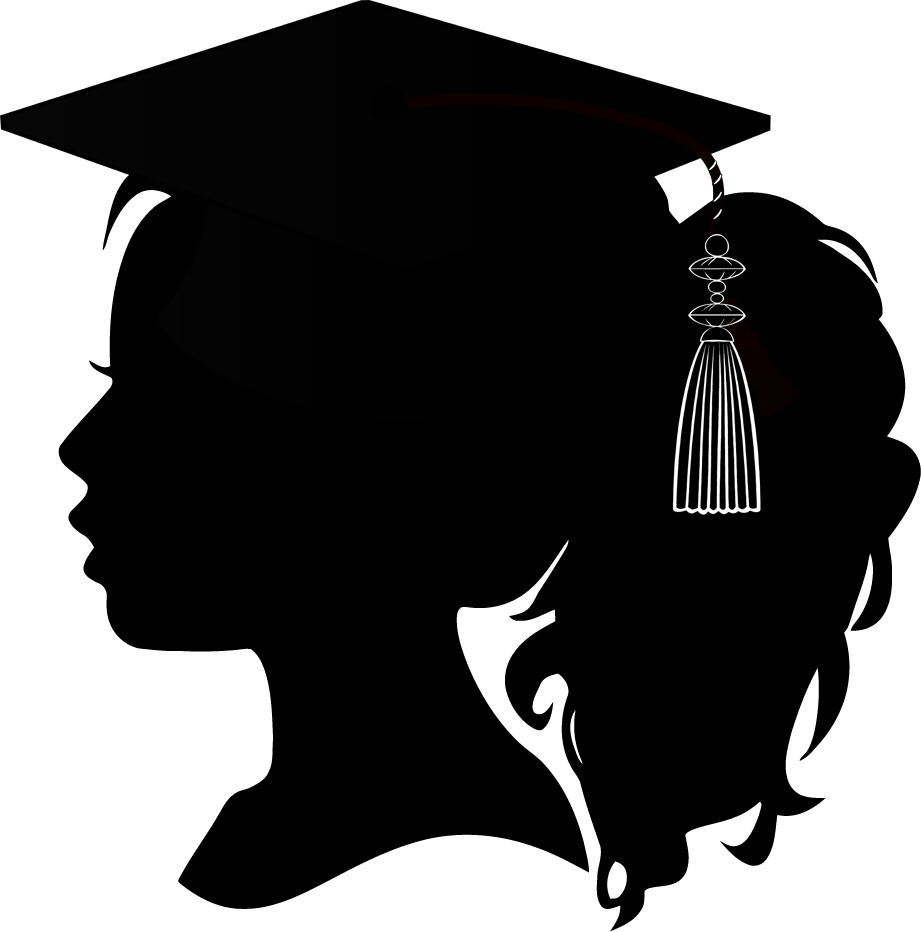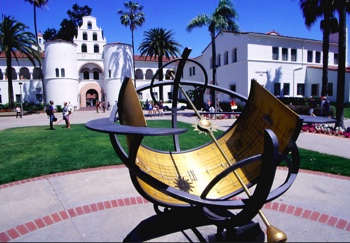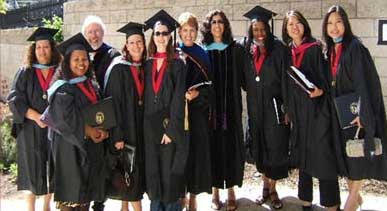Overview
The Rehabilitation Counseling Program (RCP) at San Diego State University (SDSU) is fully accredited by the Council for Accreditation of Counseling and Related Educational Programs (CACREP) through the 2022/2023 academic year. During its most recent reaccreditation review in 2014, the RCP received a maximum of eight years reaccreditation. U.S. News and World Report ranks the RCP as the 3rd highest rated rehabilitation counseling program in the United States. among all rehabilitation counseling programs in the United States.
What Is Rehabilitation Counseling?
Learn more about this fascinating field and the SDSU Rehabilitation Master's program from Associate Professor Tucker and current students, alumni, and employers.

9% Growth
The U.S. Department of Labor estimates a 9% growth in employment for rehabilitation counselors between 2014 and 2024. This is a faster than average growth rate.
3rd in the Nation

U.S. News and World Report ranks the RCP in the TOP 5 rehabilitation counseling programs in the nation among all rehabilitation counseling programs in the United States.
60 Unit, 2.5-3 Year Master's
Students learn
- about the career, employment, psychological, medical and cultural aspects of disability
- to propose, develop, package, and deliver rehabilitation training programs and services
- to evaluate, monitor, and refine these programs
Our grads are employed with
- the U.S. Department of Veterans Affairs
- the California Department of Rehabilitation
- State Vocational Rehabilitation agencies
- community rehabilitation programs
- other non-profit or private agencies that provide rehabilitation services
Our graduates are employed as
- evaluators
- rehabilitation counselors
- assistive technology specialists
- placement specialists
Online or on Campus?
It's up to you!
Enjoy the convenience of online learning or enjoy the sun and surf of San Diego while studying on campus.


For more information..
Contact Dr. Mark Tucker, RCP Program Coordinator
The Department of Administration, Rehabilitation and Postsecondary Education (ARPE) prepares students to be effective practitioners, administrators, and leaders in the field of Rehabilitation. The degree has been accredited by the Commission on Rehabilitation Education since 1975.
Students in the SDSU RCP can complete the Master in Rehabilitation Counseling degree through both on-campus and distance options. Both options are 60 units and typically take two and one half to three years to complete. The on-campus program offers instruction at the SDSU main campus, with classes usually offered in Lamden Hall. Classes are held Monday through Thursday from either 4 pm to 6:40 pm or 7:00 pm to 9:40 during the Fall and Spring semesters. Most students in the on-campus program reside in the San Diego area but the on-campus program does include out of state and international students.
The RCP's distance option is entirely taken on-line with instructional support provided by the SDSU Interwork Institute's Center for Distance Learning (II-CDL). The program is only available to students living outside of the greater San Diego County area, and is taken by students throughout California, as well as other states and countries. Individuals residing in San Diego County are not eligible for the distance program. The distance program is referred to as CDER (Consortium for Distance Education in Rehabilitation). Historically the distance program was focused on providing instruction to students employed by the California Department of Rehabilitation or other State Vocational Rehabilitation agencies (for background on the CDER program, click the link to visit the distance program introduction). Today, CDER includes meeting the needs of all potential students, whether they are new to the rehabilitation counseling profession, or have experience in State Vocational Rehabilitation or other agencies that employ rehabilitation counselors/professionals. Many students come to the program with life experiences, such as living and working with their own disabilities and/or relationships with family members or friends with disabilities. Many bring diverse experiences in the human services fields.
The on-campus rehabilitation counseling program admits students every fall semester. The distance program option typically admits students once every three years, with the next expected start date being fall 2024.
What is Rehabilitation Counseling?
Rehabilitation empowers people to make informed choices, build viable careers, and live more independently in the community. The primary focus of career preparation in rehabilitation is developing counseling skills, acquiring knowledge of disabilities and demonstrating respect and sensitivity for people with disabilities. Knowledge and practice of these principles, combined with a solid foundation of specialized education in the rehabilitation field, enable dedicated rehabilitation professionals to partner with individuals with disabilities to obtain gainful employment, pursue meaningful careers, and live independently.
NOTE: The concentrations and specializations described below are not available to CDER (distance) students.
Concentration in Clinical Rehabilitation Counseling
The Clinical Concentration meets the education requirements for the California mental health counselor license (LPCC) as well as the Certificate in Co-Occurring Disorders. It is the responsibility of the student/graduate to register as an APCC and complete the required supervision hours and exams for the LPCC after graduation. LPCC requirements are available on the California Board of Behavioral Sciences (BBS) website.
The Co-Occurring Disorders or Psychiatric Rehabilitation Certificates may be a better option for some applicants.
Areas of Specialization
Students enrolled in the campus (not the CDER distance) option of the MS in Rehabilitation Counseling have options for specializing in specific areas of study, including Cognitive Disabilities, Rehabilitation Technology, Supported Employment and Transition Services, and Psychiatric Rehabilitation. By completing one of these specialization areas, students can earn a post-baccalaureate certificate concurrently with the MS degree. Students may consult with their faculty advisor to customize a program of study if there are other areas of interest that are not formally available.
The general Rehabilitation Counseling program is accredited by CACREP under the Rehabilitation Counseling specialty area through October 31, 2023. The concentration in Clinical Rehabilitation Counseling accredited by CACREP under the Clinical Mental Health Counseling/Clinical Rehabilitation Counseling specialty areas through October 31, 2023.
Please contact Dr. Mark Tucker, the RCP Program Coordinator, at [email protected] or 619-594-3498 for further information.
More About the SDSU Rehabilitation Counseling Program
Rehabilitation counselors and administrators provide rehabilitation services to Individuals from diverse backgrounds who have disabling conditions such as psychiatric disabilities, cognitive disabilities, substance use disorders, visual or hearing impairments, orthopedic disabilities, and other types of disabilities. Rehabilitation professionals collaborate with consumers to address disabilities in ways that improve their quality of life and lead to greater levels of self-sufficiency. They work with individuals in the context of their family unit and environment to effect positive change. In most cases, gainful employment is the expected outcome. For some individuals, the goal is to achieve the most autonomy and independence possible. SDSU's Rehabilitation Counseling Program addresses vocational, psychosocial, medical, and cultural aspects of disability. Students learn to propose, develop, package, and deliver specific rehabilitation training programs and services, and to evaluate, monitor, and refine these programs.
 Graduates of the RCP often serve as counselors and coordinators of rehabilitation
programs, making services and benefits available to consumers. Rehabilitation administrators
may serve as program developers and entrepreneurs capable of identifying and responding
to community needs. As both rehabilitation counselors and administrators they function
as advocates for people with disabilities.
Graduates of the RCP often serve as counselors and coordinators of rehabilitation
programs, making services and benefits available to consumers. Rehabilitation administrators
may serve as program developers and entrepreneurs capable of identifying and responding
to community needs. As both rehabilitation counselors and administrators they function
as advocates for people with disabilities.
What kind of a job might I be able to do with an M.S. degree in rehabilitation counseling?
Upon graduation, a rehabilitation counselor is qualified to work in a wide variety of rehabilitation settings. A rehabilitation counselor can find employment within State Departments of Rehabilitation; in community rehabilitation programs, as evaluators, counselors, assistive technology specialists, or placement specialists; and in other community agencies that provide rehabilitation services with persons with disabilities. Some graduates work in specialized fields such as deafness, mental health and alcohol and drug abuse. Another market for rehabilitation counselors is in private rehabilitation, providing rehabilitation services for injured workers. Rehabilitation counselors are employed in school settings, to assist students with disabilities transitioning from school to work. Institutions of higher education and private industry offer employment opportunities for rehabilitation counselors. Finally, many graduates develop their own careers through grants and contracts that support services to individuals with disabilities. Our graduates work as program managers and administrators in all of these settings. The demand for qualified rehabilitation professionals is expected to increase steadily during the next several years as many professionals who contributed to this field since the 1970’s are retiring. According to the U.S. Department of Labor, the expected growth rate of rehabilitation counseling positions is faster than average, with a projected 9% to 13% growth in rehabilitation counseling positions from 2014-2024.
San Diego: A Thriving Educational Center
San Diego with its warm, temperate climate, is the second largest city in California, and is a thriving cultural, scientific, and educational center. The area is home to five major universities, eight community colleges, many proprietary schools and numerous organizations with graduate assistantship, internship and job opportunities in the region.
Program offerings are described in the University Catalog.